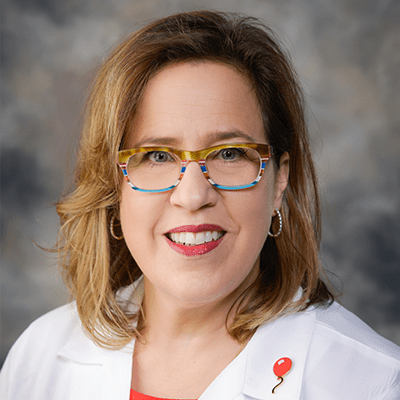About Us
When a child is born with a congenital heart defect, it can bring a range of emotions for families, from fear and uncertainty to determination and hope. We understand these feelings and are committed to providing the best cardiac care possible. From minor murmurs to complex heart defects, disorders and diseases, we offer comprehensive care through our Dr. C.C. and Mabel L. Criss Heart Center. Our team provides specialized cardiac care for patients of all ages, from before birth through young adulthood and into adulthood for those with congenital heart disease, ensuring the highest level of care every step of the way.
Contact Us
Cardiology
Phone:
Fax:
402.955.4356
Cardiac Diagnostic Services
Phone:
Fax:
402.955.4357
Cardiothoracic Surgery
Phone:
Fax:
402.955.4364
Adult Congenital Heart Disease Program
Phone:
Fax:
402.955.4356
Meet Our Providers
Our expert cardiac team is dedicated to providing the highest quality care for children with heart conditions. In addition to our specialized cardiac providers, the care team may include behavioral health specialists, child life specialists, dietitians, nursing case managers, pharmacists, social workers and more, all working together to support each child and family every step of the way.

Ali N. Ibrahimiye, MD
Languages: German, English
Specialties: Adult Congenital Cardiac Disease, Cardiothoracic Surgery




Ram Kumar Subramanyan, MD, PhD, FACS
Languages: Hindi, Tamil, English
Specialty: Cardiothoracic Surgery

Camille L. Hancock Friesen, MD
Language: English
Specialties: Pediatric Heart Failure and Transplantation Cardiology, Cardiothoracic Surgery
Locations
Related Specialties

Cardiac Care Unit (CCU)

Cardiology

Cardiothoracic Surgery
Clinics and Programs
Patient Spotlight
Angelina’s Story: A Sudden Cardiac Arrest Survival Story
Jagger’s Story: Heading Home After 548 Days in the Cardiac Care Unit
Awards and Honors
Our Adult Congenital Heart Disease program is accredited by the Adult Congenital Heart Association and was the first in the nation to achieve reaccreditation.
Children's Pulmonary Hypertension Program is accredited by the Pulmonary Hypertension Association as a Regional Clinical Program. It is the first pediatric program to achieve this designation.
Children's extracorporeal membrane oxygenation (ECMO) team is recognized with the Platinum Level of the Extracorporeal Life Support Organization's (ELSO) Award for Excellence.




